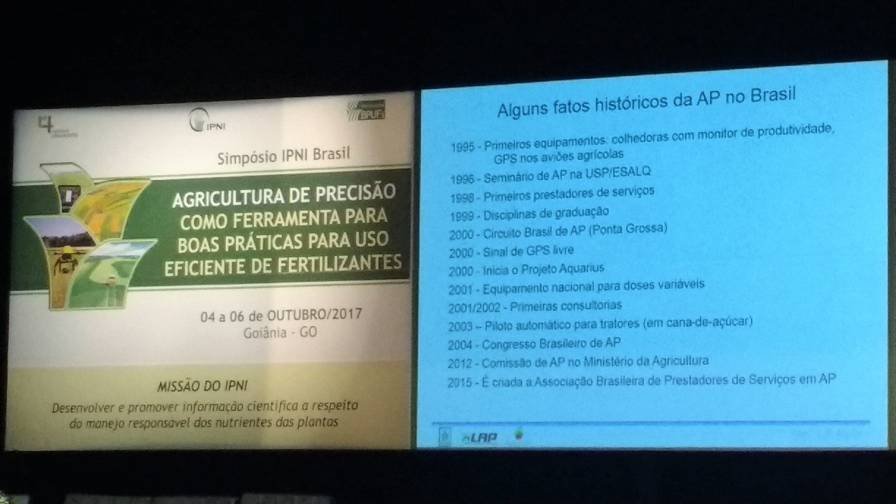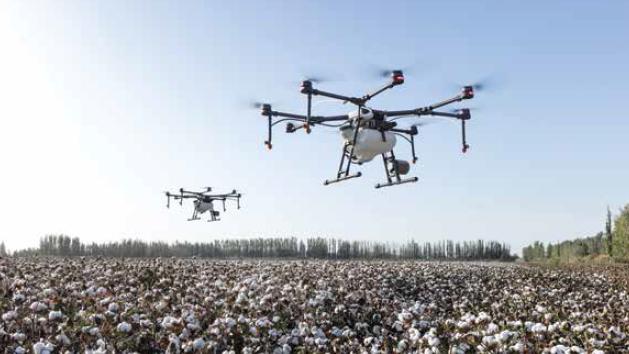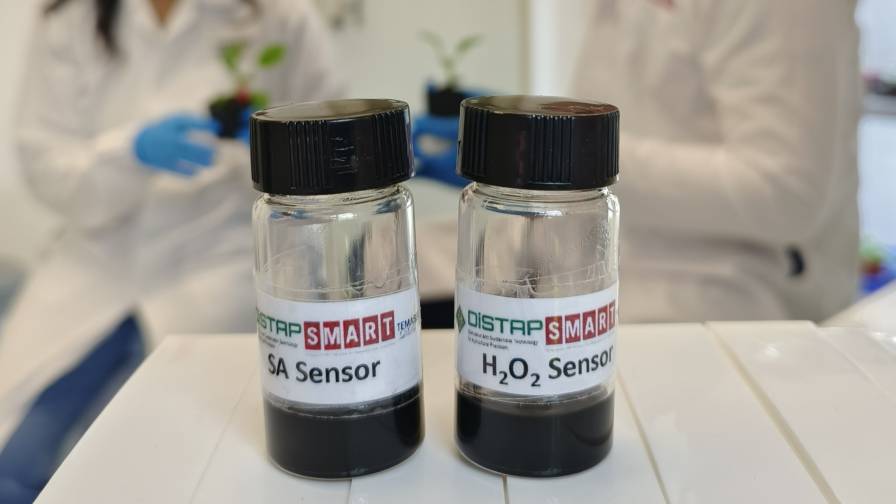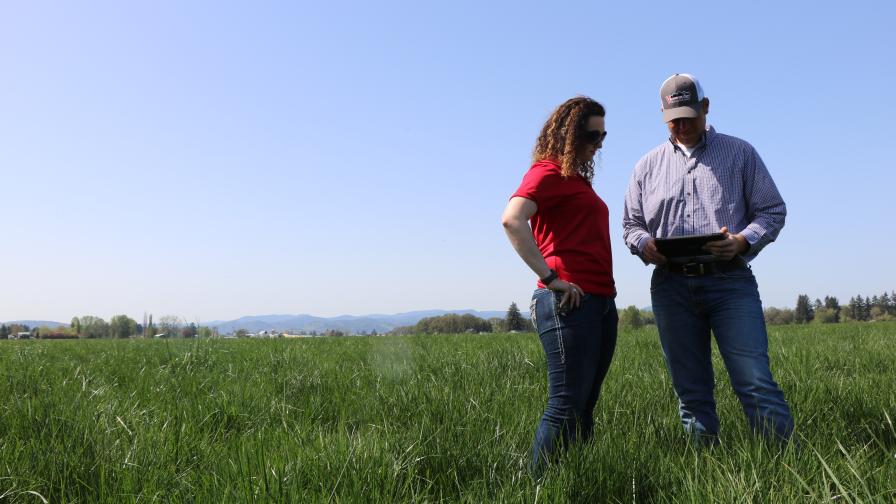IPNI Brazil: Precision Agriculture to Improve Nutrient Use Efficiency
As I mentioned in my last article, the IPNI Brazil Symposium on Precision Agriculture was held in early October in Goiânia, Goiás, in central western Brazil. Attendees were mainly service providers, crop consultants, soil analysis laboratories, fertilizer companies, agricultural machinery companies, researchers, and farmers. Presentations were made by important precision ag researchers from Brazil, U.S., and Mexico, with a focus on fertilizer best management practices.
Several key concepts for the adoption of precision agriculture were recalled and discussed. The topic that generated the most controversy was grid soil sampling, mainly due to the concerns of the minimum density of points required to efficiently characterize the spatial variability of an area. The commonly adopted standard of one point for every 3 to 5 hectares is not always sufficient for this. Dense sampling schemas have little acceptance due to higher costs. The use of remote and proximal sensors for the collection of dense auxiliary data is still marginally adopted. The main alternatives discussed were the use of management zones or sampling in regular cells, without the use of interpolation. This is especially the case when the total number of points is small, less than about 60, due to small areas or low sampling density. One of the limiting factors for the adoption of management zones in Brazil is the lack of good quality yield maps. It is estimated that this important data source is being collected in less than 1% of the grain production area in Brazil.

Picture from the closing session at IPNI Brazil Symposium on Precision Agriculture. Professor Jose Paulo Molin presented a historical review of precision agriculture development in Brazil and future trends.
The management practices to take advantage of variability were also discussed. It was a consensus that there is an urgent need for agronomic knowledge to evolve to enable more complete and assertive recommendations. One example of research that was presented is the use of cover crops planted at different densities in each management zone according to the main problem to be overcome. Understanding the relationship between soil and relief attributes, such as water retention capacity and crop response to fertilizers, has also been shown to be important for generating prescriptions. One of the tools that researchers and farmers are using to advance in this subject is the use of on-farm trials in each management zone. Plant population and fertilizer rates have been the most commonly addressed subjects through this technique. This will also be one of the topics discussed at the Seminar of Precision Agriculture, which will be held in Piracicaba – SP in November.
The importance of training and educating people in precision agriculture was also mentioned by many speakers. After approximately 20 years of precision agriculture use in Brazil, less than 5% of undergraduate courses in Agronomy or Agricultural Engineering have incorporated precision agriculture as a subject in their academic curriculum. Despite the existence of many short-term and even postgraduate courses, many undergraduates do not even have the chance to be formally introduced to important concepts of precision agriculture. The Brazilian Association of Precision Agriculture (AsBraAP), created last year, should add efforts to promote the education of precision agriculture and improve the qualification of professionals in related fields. Another important action of AsBraAP is to promote the Brazilian Congress of Precision Agriculture. The CONBAP 2018 was officially launched during the event and will take place next year in Curitiba – Paraná in October.
MORE BY RODRIGO TREVISAN
Highlights from the 14th International Conference on Precision Agriculture
The IPNI Brazil Symposium on Precision Agriculture presented excellent technical quality and a good environment for learning and professional networking. More than that, it reinforced the importance of generating and disseminating good knowledge. Precision agriculture is an excellent tool to improve nutrients use efficiency and a lot of people are coming together to advance with this technology in Brazil and worldwide.










